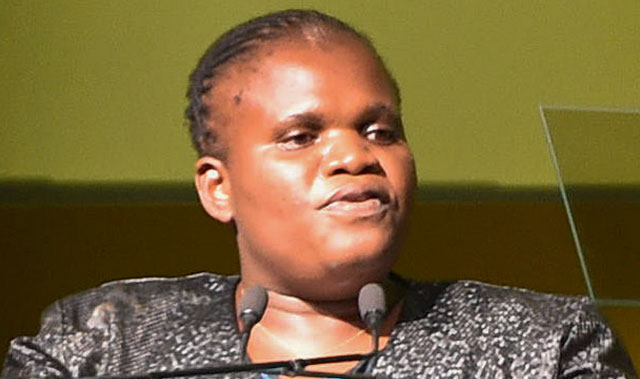
The department of communications is confident of winning its constitutional court appeal against encryption of set-top boxes.
The supreme court of appeal ruled recently that the decision by communications minister Faith Muthambi to drop encryption from the set-top boxes for digital terrestrial television was flawed.
The court ruling was a victory for free-to-air broadcaster e.tv, which insists on encryption to provide “high-quality content”.
However, Naspers-owned pay-TV provider MultiChoice and the department have launched a constitutional court appeal against the judgment.
“We’re confident that we have a strong case,” said Muthambi’s spokesman, Mishack Molakeng.
MultiChoice said that subsidiary M-Net is appealing the “whole of the supreme court of appeal judgment”.
“We are seeking leave to appeal because these errors have far-reaching implications for the process of digital migration, but equally critically for the way in which executive authority is exercised in the ICT sector,” MultiChoice said.
M-Net further plans to challenge e.tv’s argument that encryption is needed to allow free-to-air broadcasters to obtain high-definition content.
“M-Net had furnished specific evidence to demonstrate to the court that the majority of free-to-air terrestrial television broadcasters worldwide — including the BBC, ITV, and Channel 5 in the UK, and PBS, ABC, NBC and CBS in the US — do not encrypt their signals and are able to obtain high-definition television content from international studios,” said MultiChoice.
The view of the department and MultiChoice is supported by technology consultant Andrew Fraser.

“The department of communications may have failed to properly consult with all players, and will have to do that, but I think the supreme court of appeal erred in striking down the two regulation clauses,” Fraser said.
The department proposed a “control system” to prevent the subsidised set-top boxes from being sold internationally.
“The ‘control system’ that has been proposed by the minister is the simplest method to fix one issue: to stop taxpayer-subsidised set-top boxes from being exported. That’s all it is meant to do, so a simple mechanism that disables the decoder completely if it doesn’t receive a keep-awake signal from one of the South African broadcasters is sufficient,” said Fraser.
The government will provide about 5m set-top boxes to poor households as the country migrates broadcast TV out of the key 800MHz spectrum earmarked for mobile broadband services.
MultiChoice is a dominant player in the digital pay-TV space, and the company has argued that encryption will allow e.tv to jump-start its pay-TV offering.
“I read MultiChoice’s answering affidavit in e.tv’s appeal to the supreme court of appeal, and I can’t understand how the court bench dismissed their arguments. While they obviously want to keep the barriers to entry high in the pay-TV space, they are legally within their rights to do so,” said Fraser.
“They might be a monopoly, but we’re not going to fix that by introducing something that blatantly — and unfairly — favours another company’s business model at the cost of the South African taxpayer,” he added.




